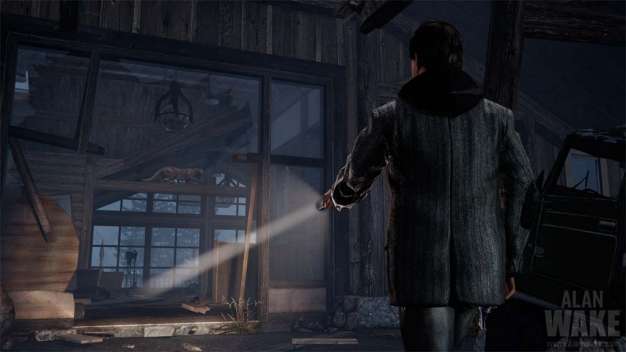This post has not been edited by the GamesBeat staff. Opinions by GamesBeat community writers do not necessarily reflect those of the staff.
Editor's note: Mark blinds us with science — specifically, the science of perception and how our surroundings affect our gaming. Do you tend to play strategy games during the day and story-driven games at night? -Brett

Nothingness, a black void bereft of all good things — that’s what many of us think of when we imagine darkness. The truth of the matter is that both light and dark are integral parts of our lives, mentally and biologically. If either of them went away, humanity would drastically change. While the light is our safeguard, the time when we get our work done, the night is when our creative juices roam free and overthrow any safety we once felt.
What you’re probably asking yourself now is, "What does this have to do with gaming?" The simple answer is that the atmosphere we surround ourselves with while we enjoy our favorite hobby can drastically alter our experience with games.
The human body is a mystery, one that may not fully be solved for centuries. It is a complex combination of systems and rhythms that is thrown off by even the slightest change in our day-to-day habits. Our eyes, minds, and bodies process every iota of our surroundings and use them either to our advantage or disadvantage, whether we’re playing a game, driving a car, or simply trying to pay attention in class.
This means that during the day, the absorbed light helps us stay awake, alert, and ready for what the day may bring. Our brains and bodies are working at their highest possible capacity then. Our motor functions and thought patterns are at their max.
Games that involve quick reflexes, expert strategies, or just pure muscle memory will not only be easier to play during the day, but you’ll also retain the information your body processes while playing them better than you would at night. You’ll be able to pull off that Rising Ultra Dragon Uppercut (that’s a move, right?) with Ryu more smoothly in Street Fighter 4, get that headshot against the Locust more accurately in Gears of War, or take over the world more efficiently in Civilization 4 while the light streams through your window.

But things are a bit different at night. The lack of light for your eyes to absorb immediately draws those performance functions to a close, and your mind and body start to shift into a state of rest. This doesn’t mean you shut down — just that your brain activates different functions that get your body ready for the next day. Your higher-thought processes are more intuitive at night, as your mind is less focused on managing a million different jobs at once.
This makes the dark the perfect atmosphere for immersive games — survival-horror games, role-playing games, and adventure games that seek to suck you into their story and envelop you with their environment and characters. Because your mind is in a period of rest and working at a more even pace, you have a heightened sense of fear, and your imagination can run wild. Suddenly the shadows in Alan Wake feel a bit more real, BioShock's Rapture — and the horrors it produces — transforms into a tangible possibility, and… well, the pyramid-headed monster from Silent Hill is still absolutely ridiculous.
So the next time you’re thinking about picking up a game, make sure you set aside the proper amount of daylight — or lack thereof — to experience it at its greatest potential. Your mind and body will certainly thank you for accommodating them!
You can find this article and more like it by Mark T. Whitney over at geekCasual!
